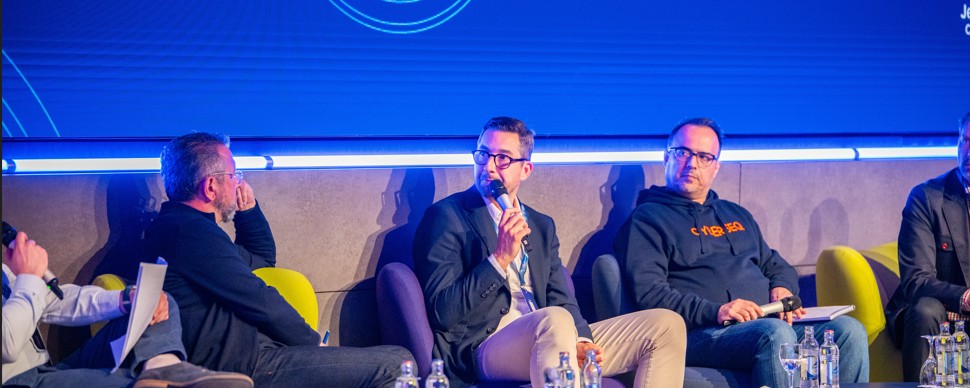For years, the cost of developing cutting-edge artificial intelligence solutions or accessing cloud-based high-performance computing (HPC) resources was an insurmountable barrier for many small companies or startups. Today that barrier is crumbling. SCynergy 2025 explored how Luxembourg startups are leveraging new technologies, the support available locally, and how the AI and HPC trend is being viewed in the investment world.
Don't reinvent the wheel: Leverage existing tools
One of the most powerful shifts for startups is realising the time and fortune that could be saved when creating a complex technology. “In the early days when we were building Tadaweb, we had to do every single thing ourselves and from scratch, and everything had to be in-house technology,” explained Genna Elvin, co-founder and Chief Tada Officer of Tadaweb. It is a technology company that provides an Operating System for PAI (Publicly Available Information) and OSINT (Open Source Intelligence).
“Now with everything emerging quickly, startups are embracing the multitude of technologies that are available to them. If there's already a technology out there, use that. Looking back, the way we build today is very different,” she stated.
Similarly, Viktor Dufour, founder of AI fashion advisor Essembl, shared that his team spent months creating their own AI, and shortly after, Google released the upgraded Gemini 1.5 model. "It just completely obliterated whatever we had been doing," he admitted. They quickly switched to using Google's tool and focused on what really mattered: creating the best possible app for their users. The company onboarded around 50,000 users within the first months of launching back in 2024.
Solve a problem, don't just sell a buzzword
Investors are hearing the word "AI" in every pitch. But simply dropping a buzzword won't unlock the funds needed. Michel Rzonzef, President and Chairman of the Luxembourg Business Angel Network explained investors are more focused on the solution itself.
"We don't invest in technology for the sake of technology," he stated. "We need to get a feel that this technology is going to solve a problem for which you can scale." In other words, investors want to know that you are using AI to fix a real-world issue for a large number of people. He equally highlighted an increase in the number of AI projects presented to investors from the fields of health to space and defence. “Today, going to an investor group, business angel, VC or others without reference to data and AI is probably suicide. But in general, they look at the solution that the startup is going to create.”
Your local advantage is a secret weapon
While global tech giants like Google and Amazon offer powerful tools, startups must not overlook the resources in their own backyard. This is because the local startup ecosystem can provide a unique and powerful advantage.
Bastien Berg, CEO of the Luxembourg-City Incubator, highlighted one advantage: "Personalised contact." Hands-on support from local experts opens doors to powerful resources like MeluXina, the national supercomputer, managed by LuxProvide. Programmes like “Initiate” and “Cashback 80%” enable startups and SMEs to explore the business-oriented supercomputer. Others like Fit 4 AI, managed by Luxinnovation, help companies to identify how to use AI to grow their business.
“Having tech resources actively available locally ensures that startups can get off the ground a lot faster than they would if they had to suddenly commit to very expensive external resources,” underscored Ms Elvin.
Safety and unlocking value in data, whatever the scale
The advantages of keeping data local were also highlighted as a significant benefit. Ensuring that your processing is happening here on the ground in Luxembourg can be highly advantageous. Tadaweb is focused on small data – which essentially means information humans can process – however, the co-founder underscored the importance of high-performance computing. “Although we are not using HPC directly, we're using a lot of technologies that obviously need a lot of processing power. So in an indirect way, the fact that the world now has quantum computing and supercomputing has had a positive impact on the way in which we're building our team,” Ms Elvin asserted.
Mr Dufour noted that Essembl works a lot with big data, and the company is now collaborating with LuxProvide to sort through it and discover its potential. He clarified that their goal is not to replicate existing large language models, a strategy that would be financially impractical for a startup. Instead, they are in a "proof of concept discovery phase," focusing on sorting the data, creating user clusters, and exploring what new and interesting applications can be developed from it.


